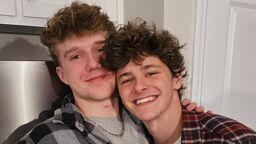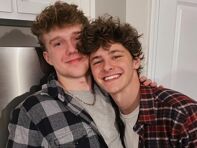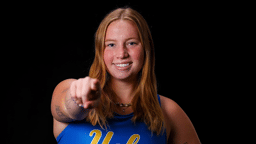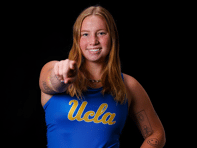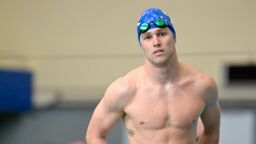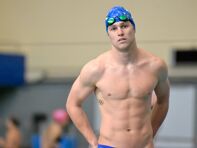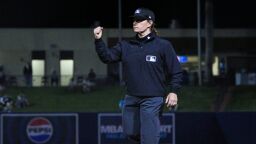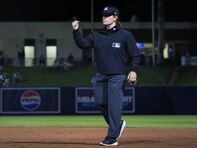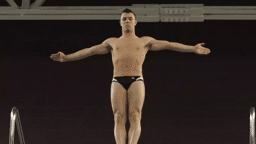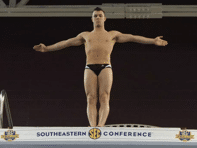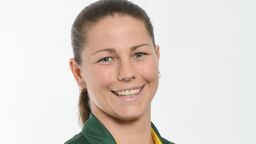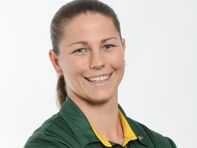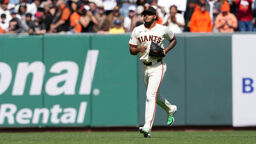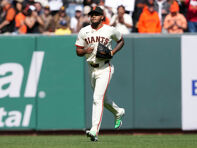This is part of an ongoing series of articles highlighting the voices of various members of the National Gay Flag Football League.
A fire needs three ingredients to burn.
Heat, which could be from lightning, the sun, or radiant heat from a heater. Fuel, which could include wood, paper, leaves, gas, or petrol. And finally, oxygen.
Growing up Black that heat was stress to constantly present myself as non-threatening, well-spoken and successful. It was, and continues to be, a helluva burden. That last one — being successful — is the worst heat of all, because growing up Black, you don’t have a second option. You have to succeed, you have to be better than everybody else, you have to work twice as hard to be half as good.
You most definitely can’t be queer.
Why? Black men aren’t supposed to be into other men. Black men are supposed to be strong, they’re supposed to be kings, they’re supposed to take care of their family. They’re not supposed to be “fairies,” they’re not supposed to be “weak.”
I grew up in the inner city of Tampa, Fla., in the shadows of Ybor City (though I claim Oakland, Calif., as my hometown). I learned how to navigate the world in its true form. Racism, placism, classism, sex workers, drug dealers, crooked police. You name it, we see it and handled it in Tampa (and Oakland).
Yet I had one more thing to deal with: being queer.
During the 1990s and into the early 2000s there were no Black queer role models, thought I had black role models for days from shows like Martin, The PJs, Living Single, Roc, Family Matters. I saw how to be Black, but I never saw how to be queer.
Hell the first queer show I remember seeing was Queer as Folk, and it was all White people on it. So I was thinking, “I’m not queer, I just like guys and I’ll ultimately marry a woman.”
It’s crazy how much anger and rage could fuel me. From high school football to college football to semi-pro football, I played the game angry, and with so much hatred. It fueled me to captaining my semi-pro team as a rookie safety, leading that team in interceptions and passes defended.
I was third on the team in tackles, and I followed that up with captaining my second team and again leading them in interceptions and passes defended.

Playing an extremely violent sport was right in my wheelhouse. When I was on the field, being that angry and having that much hatred was beautiful for my team and hazardous to others. I was a heat-seeking missile, wanting to inflict all of the hurt and punishment that I felt inside.
I did just that.
Guys would approach me with such respect after the game, but it was nothing to me. I was dying on the inside, I was broken and damn near as empty as it came.
Empty. That is what I was during my time playing sports, and even in school. I wanted to be successful because I didn’t want people to say, “He’s a Black gay failure.”
My biggest fear was ending up like those whom I had to walk by and deal with growing up. That environment and that self-hatred fueled me to do something with myself just as a big “fuck you” to the world.
From my dad who basically didn’t want me, to my fifth grade teacher who said I wouldn’t amount to anything, to the kids in my high school who said I was either too Black or too White to hang with them, I wanted to prove everybody wrong. I wanted to give them the one-finger salute.
What’s sad through all of that: As I succeeded I was more and more empty, and more and more depressed.
One of the first people I came out to was my best friend Bob. We struck up a friendship at our Noncomissioned Officer Academy in the military, and I just got the balls one time to tell him, “Hey, I have a boyfriend.”
He was shocked a bit and asked the typical straight-guy questions, but there was no sense of disgust. It was more, “dude that’s awesome, fuck you for not telling me earlier, you dick. But I love you anyway.”
That started giving me the confidence to just start living my best life. I came out to my parents, which was as anti-climatic with my mom saying, “ok?” And my dad saying, “Can we still get wings or no?”
All of that and the support of my husband, Josh, gave me the confidence to not only join the D.C. Police Department, but to also lace up my cleats one more time, and to play the sport that I’ve been a part of since I was 4 years old.
I got that opportunity in the DC Gay Flag Football League, where I quickly established myself as an elite player, albeit with a bunch of growing pains in that league. My close friends from that league have an idea, but I don’t think they really know how much confidence they gave me, in growing into a queer Black male.
Seeing them live their authentic lives, and holding amazing careers, showed me that, “Hey I can do this too”.
Do I still struggle with insecurities? Hell yeah. I’m a 32-year-old Black male who works in a predominantly White field and is currently in the military. And I’m queer.
Kobe Bryant said, “The key, though, is being aware of how you’re feeling and how you need to be feeling. It all starts with awareness.”
I’m well aware of all of this, but it’s still I grind.
The thing about my story is not that I never gave up, but that I still stayed hungry and stayed obsessed with success and breathing the right air to feed that fire in me.
To the LGBTQ+ youth, soldiers, little Black boys and Black girls: You have that same drive, be obsessed with success and chase your dreams. Live your life, and live it to the fullest, ride life until the wheels fall off. But most importantly find happiness and be your authentic self.
Ignore what the world says, and reject the naysayers. In the words of Captain America, “The requirement is that we stand up for what we believe, no matter the odds or the consequences.
When the mob and the press and the whole world tell you to move, your job is to plant yourself like a tree beside the river of truth, and tell the whole world: “No, you move.”
Wilthalrio Coachman is a Masters student at the University of Southern California, School of Social Work. He is also a married homeowner in the Seattle area. He is the current captain of the Seattle Boom of the National Gay Flag Football League, Staff Sergeant in the U.S. Army, and a Case Manager with Homeless Veterans. He can be reached on Instagram @blackwaldo88.

Story editor: Cyd Zeigler





